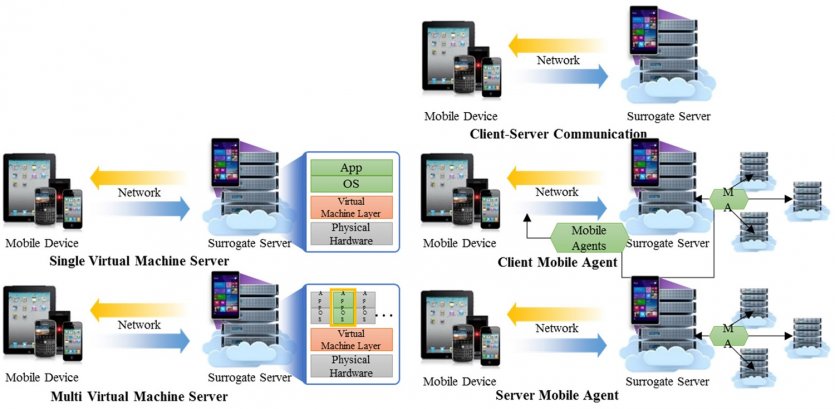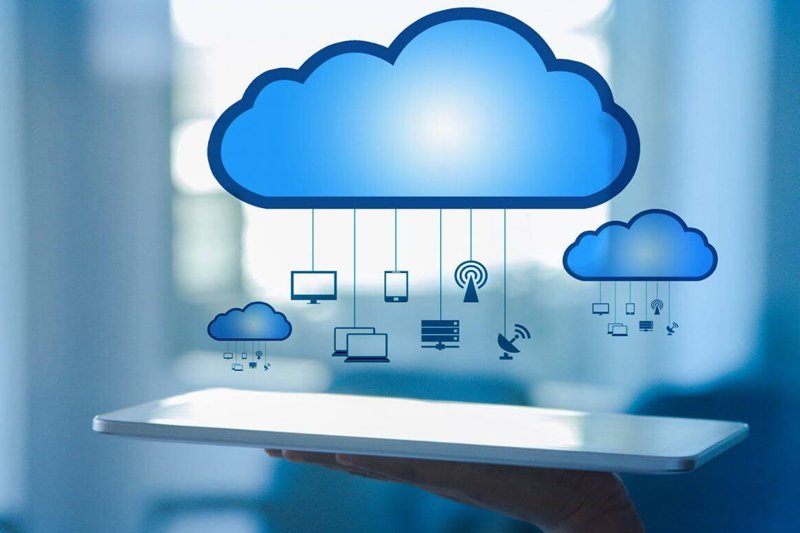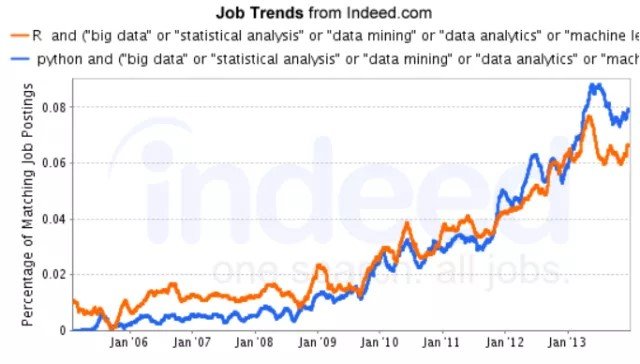What Is Mobile Cloud Computing (MCC) And What Are Its Benefits?
A Report Released By The Mordor Intelligence Institute Shows That The Mobile (Mobile) Cloud Market Will Reach $ 118.70 Billion By The End Of 2026.
Mobile Cloud Computing (MCC)Technology Is Constantly Evolving. However, Mobile Cloud Computing (MCC), The Headline Of Mobile Cloud Computing, Is Advancing Faster Than Other Paradigms In The World Of Cloud Computing.
You may be surprised or upset to hear this, but the fact is that application software companies have taken a strange interest in the cloud and are trying to move their applications to the cloud. This strategy has its advantages and disadvantages.
For example, you no longer have to store different types of applications on your PC or mobile device, or buy expensive machines to run applications, because your smartphone or tablet only acts as an interface, or rather an interface.
It is Which provides access to applications hosted on the cloud. This article will introduce you to one of the most potent and promising cloud computing paradigms that the market has not yet wholly entered the Iranian technology market.
What is Mobile Cloud Computing?
Mobile cloud is a combination of mobile applications and cloud-based services that use cloud infrastructure to provide services and cloud applications to mobile device users. Research by the Mordor Intelligence Institute shows that the technology is advancing rapidly in Asia-Pacific, and most companies based in East Asia and Australia have invested heavily in this area.
The United States and Europe have been investing heavily in this area for some time, but Southwest Asia and Africa lag behind other continents in this area (Figure 1).
figure 1
Why is mobile computing critical?
A mobile cloud application is a hyper-centric software in which hyper-centric and local components work seamlessly together. In this architecture, data centers store data, and applications run on servers located in the data center.
So it would help if you had a stable internet connection to access these super-centric mobile apps. In the above architecture, all calculations are performed on the cloud, and the data is stored.
The above approach increases the flexibility of applications running on different devices because not all mobile devices have powerful processing and storage resources.
Mobile cloud computing allows software developers and software companies to design mobile applications capable of using cloud services. In this way, applications are stored on servers and used by users similar to web pages.
The advantage of this method is that mobile devices may have different operating systems and system data but can use other applications because the platform constraints are removed, just like the status of the websites you use daily.
A website may be written in different programming languages and hosted on a Linux or Windows cloud infrastructure, but you can open websites from any device and operating system. Companies are now looking to implement such a pattern concerning mobile applications.

figure 2
However, the idea behind mobile cloud computing is more than just running applications remotely. This computing paradigm facilitates mobile users’ access to rich computing resources and allows mobile network operators and cloud computing service providers to provide consumers with a new service.
So that cloud computing, mobile computing, and wireless networks allow it to run rich mobile applications and rich internet applications (Rich Internet Applications) on various mobile devices.
In this discussion, Ghani refers to a specific type of application hosted on the Web, is fast and interactive, and requires powerful processing equipment to run beyond mobile devices on par with desktop computers.
Mobile computing is an evolution of cloud computing
Cloud computing refers to computing services over the Internet, including storage space, databases, software, and application analytics. This computing is based on a payment-for-services model and is a cost-effective and scalable model.
Mobile computing lets you access data and information wherever you are. This data can be documents, audio, video, and any file transmitted over the network and accessed using a mobile device.
Initially, mobile computing was create to meet the needs of consumers. Still, as organizations integrated their business plans and processes with mobile devices, it became a larger market, allowing employees from anywhere to perform their assigned tasks. It is an approach that saves time and money.
Now that you have the basics of mobile cloud computing let’s look at all-purpose and special-purpose mobile cloud-based solutions.
General Mobile Cloud Computing (GPMCC) Solutions
GPMCC (General-Purpose MCC) solutions refer to standard systems used by cloud-based infrastructure to improve the performance of mobile devices. These systems are designed to overcome the limitations of the computing power of mobile devices. GPMCC transfers processing that takes place locally on a mobile device to the cloud. These include tasks such as speech recognition, video indexing, and intelligent processing.
Particular Application MCC Solutions (ASMCC)
Essential and specific applications that run on mobile devices use cloud computing in a variety of ways. For example, access to analyzed climate information or view forecasts related to financial market fluctuations based on modern computational approaches use mobile cloud computing to provide information in a compact form with minimal bandwidth. All in all, ASMCC (Application-Specific MMC) refers to developing applications specifically for mobile devices that use cloud computing in this area.
Both GPMCC and ASMCC models allow mobile devices to take advantage of the Data-Intensive Applications architecture, but ASMCC has another advantage. ASMCC makes it possible for mobile devices to more efficiently utilize the inherent capabilities of cloud computing in heavy applications such as big data processing or the management of streaming streams that transmit large amounts of data, such as chat. Therefore, they eliminate the need for advanced computers to perform some calculations related to this field.
Now that we know the basics of mobile cloud computing, it’s time to see what tangible applications MCC has in the real world.
Mobile cloud computing applications
As mentioned, a mobile cloud application is a software that can access the Internet on mobile devices. In the real world, there are many examples of super-axes, some of which are as follows:
Email: Email is a typical example that all people use. Gmail, Outlook, Yahoo are famous examples of email. You use mobile computing technology when checking your emails over the phone.
Office: In the past, users used to install a version of Word on their mobile phones to use Office software such as Word, but now this is not the case, and it is enough to have a Microsoft or Google account, type your articles in Word and Web-based and click Edit it on your personal computer.
Social Networks: Twitter, Instagram, Facebook, and other social networks allow mobile devices to perform the data sharing process in real-time. For example, a mobile phone user can save data and share videos with other users. In this field, mobile cloud computing offers an advanced and new form of cloud services called OTT called Over The Top. OTT is one of the most advanced defined applications for cloud computing, classified into several groups. In connection with social networks such as WhatsApp that allow voice communication, this architecture is called OTT Voice.
E-Commerce: If you use a banking application or e-banking site on your mobile phone, you use mobile cloud computing. MCC uses scalable processing power when discussing mobile commerce.
Healthcare: In the discussion of mobile healthcare, MCC allows large amounts of information to be stored in the cloud and accessed via a mobile device. For example, quick access to patient records is one of these applications.
Why take mobile cloud computing seriously?
Companies have welcomed Mobile Cloud and Mobile Cloud Computing due to advances in information technology and simplifying access to services. The most important advantages of the mobile cloud should be mentioned as follows:
Affordable
You do not have to spend a fortune to use mobile cloud computing services. You only pay for what you use, and sometimes access to some services is free.
flexibility
Creating and updating mobile cloud applications using cloud services is easy. In addition, MCC supports a wide range of development tools and solutions, some fully cloud-based and some of which can be run on mobile devices. For example, it is possible to use integrated cloud-based development environments to build applications through mobile devices. Cloud applications work like web-based applications, fetching data through direct interaction with the cloud to provide a seamless and seamless user experience.
Shared resources
Cloud-based mobile applications make the user’s device resources minor because they are wholly or partly dependent on cloud server resources. For example, heavy data processes can run in the cloud. Therefore, mobile applications are not limited by device storage space when it comes to storage. In addition, because most of the processing is done in the cloud, the device’s battery runs out later. Resource sharing is essential in multi-tenant discussions and support for diverse applications.
Data integration
MCC allows users to collect and integrate data securely and quickly from a variety of sources. You receive instant data as you wish, and whenever you need it, you store the data in the cloud and review it in the future. Additionally, you can back up data to the cloud.
Data Recovery
With MCC, you can retrieve critical data over the cloud by following specific steps. Recovery is possible from anywhere, as long as you are connected to the Internet and have enough storage space on the device.
User trends and demands
Customers of a business want to have easy access to applications from anywhere, anytime. The MCC makes this easy.
Overcoming resource constraints on mobile devices: An essential point in mobile cloud computing is the lack of resources on mobile devices compared to desktop systems. Mobile devices such as mobile phones and tablets have smaller screens, less memory and processing power, and limited battery capacity.
Due to the lack of resources in these devices, more mobile cloud computing is offered in the SaaS model. It means that information processing and storage of applications previously installed on mobile devices is done in the cloud.
Mobile cloud architecture
MCC refers to a specific cloud infrastructure that processes and stores data in the cloud rather than on users’ mobile devices. Remote computing is the buzzword of this architecture, and the limitations of mobile phone resources are no longer a challenge, as super-centric resources solve this problem. These centralized resources are available through a wireless connection on the mobile phone. In general, the MCC allows access to the following four hubs:
Distant immobile clouds
Proximate immobile computing entities
Proximate mobile computing entities
Hybrid (combination of the above three modes)
Challenges of mobile cloud computing
We’ve explored some of the benefits of mobile cloud computing, but the technology faces challenges, some of which are as follows:
Function
Remote servers host mobile cloud applications and access them through public networks. The above approach can reduce the speed of response and access to mobile cloud applications.
Connectivity
It would help if you had a stable internet connection to use a mobile cloud application. If the link is not very fast, you will face severe problems in using mobile cloud applications. In addition, as the number of mobile users increases, mobile data traffic increases, which may disrupt communication between mobile and cloud endpoints.
Delay and bandwidth
Delay and bandwidth are other essential factors that affect mobile cloud computing. Cellular (4G) wireless networks have reduced latency, but bandwidth reduction becomes a problem when the number of mobile devices increases. Bandwidth in mobile networks can be more limited due to the bandwidth of each tower for each cell in some areas.
Battery life
Excessive network use affects the battery’s life, and sometimes the battery is discharged very quickly. Although it does primary cloud computing, devices need a good battery life to access applications and other tasks.
Compatibility
Cloud infrastructure must support multiple operating systems, which is costly.
Security in mobile cloud computing
Data security and privacy are other significant challenges. Mobile users often send sensitive information over the network or while using applications. If this information is not adequately protected, the challenge of data breach arises. When storing data on remote servers, the issue of ownership occurs. For example, who owns the data when audio and video are stored on a remote server instead of the local source?
last Word
Mobile cloud computing is a powerful tool in the business world. Companies can use cloud computing to provide services to mobile devices and take advantage of the potential benefits of this computing model. Flexibility, cost-effectiveness, real-time, and ease of use are just some of the potential benefits of MCC.
Although this technology has its challenges, there is no doubt that MCC will remain and grow in the world of cloud computing.


